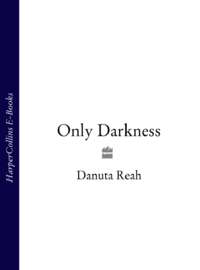
Полная версия
Silent Playgrounds
She turned over in bed. She hadn’t told. She’d kept the secret, but she didn’t know what to do now. She wished Sophie was there. Sophie would know. She turned over again. Her bed wouldn’t get comfortable. She looked at the window. It was dark outside. She couldn’t see it because the curtains were drawn, but she knew the dark was there. It was OK, though. Tamby would be watching. Chasing… Sophie would say, monsters… But Tamby would watch. All safe, she told him in her head.
She heard Daddy’s voice: ‘For fuck’s sake, Jane, what did she say?’ and then his voice got quieter. She knew what they were talking about. They thought she didn’t know, but she did. They were talking about Emma. The monsters had got Emma, Lucy knew that. Emma was the grown-up and Lucy was the little girl, but Lucy knew about monsters. She’d tried to tell Emma, but Emma wouldn’t listen. Emma thought it was safe to play with the monsters, but Lucy knew. You play with the monsters one, two, three times, and they get you. Lucy sighed. She had tried to look out for Emma, she really had.
Daddy’s voice, loud again. ‘I want to know what she said!’
She looked at the curtain. It was moving, just a bit, just the way it did when it was draughty. It’s just the draught, Mum said. Lucy didn’t know where to watch, and the dark made it harder. It was like that game they played in the yard at school, Grandmother’s Footsteps. You turned your back and they all came for you, moving so quietly you couldn’t hear them. You turned really quickly, but they were still as anything. You never saw them move, but each time you turned, they were in a different place, nearer and nearer. But they couldn’t move as long as you were looking at them.
She was only six, but she knew about the monsters.
4
When Suzanne finally fell asleep, she dreamt. It was the familiar dream, the one she had thought she was free of, of Adam, calling to her: Look at me, Suzanne! Listen to me, Suzanne! And her father: I hold you responsible for this, Suzanne! She pulled herself out of sleep in panic, gasping, disorientated. She sat up, trying to see the clock face. The sky outside was beginning to lighten. It was nearly five. Her nightdress felt damp, and her legs were tangled up in the sheets. Adam’s face stayed with her, bringing the familiar cold lump in her stomach. She pushed the image away. Over. Gone.
The relief she’d felt faded as the events of the evening before came back into her head. She tried to shut the memory of Emma firmly out of her mind, but she couldn’t stop herself from thinking about what it would be like to be held under the water as the wheel churned above you, or to feel someone’s cold hands on you with killing intent, to … The pictures in her mind were spinning out of control now. Look at me … Listen to me …
She needed to get up, do something. It was five to five. She’d go and work on the tapes again for a couple of hours, then have breakfast.
They searched the workshop at Shepherd Wheel at first light the next morning. The roads were empty as McCarthy drove from his flat towards the park. He left his car in the entrance to the park and walked the few hundred yards to Shepherd Wheel, enjoying the silence, broken by the birdsong, the emptiness, and the stillness of the morning. Shepherd Wheel looked tranquil in the early sun, the moss-covered roof glowing a warm yellow, the walls and path dappled with shadow.
A key-holder from the museums department was there to open up the workshops for them, a young woman who, McCarthy noticed, looked anything but put out at her out-of-hours excursion. If anything, she looked excited. He guessed she was in her late twenties. She had short chestnut hair in untidy curls, her face slightly flushed, eyes shining as she took in the scene. She smiled and held out her hand. ‘Liz Delaney. Hello.’
He shook her hand. ‘Steve McCarthy.’ Yesterday’s search had found very little in the yard. Now they needed to look inside the workshops themselves. There were two doors, painted municipal green, with heavy hasps for the padlocks that kept the building closed and secure. He took the keys that Liz Delaney was holding out to him. ‘How long is it since someone was last in there?’ he asked her.
‘I don’t know exactly,’ she said. ‘Someone comes up here and checks it regularly.’ She smiled up at him.
McCarthy thought, tossing the keys in his hand. ‘How long since it’s been open to the public?’
She frowned slightly and shrugged. McCarthy kept looking at her. ‘Oh, a few months, I think,’ She waited out McCarthy’s silence for a moment. ‘It’s not really my job. It was closed before I ever worked for this department.’
Actually, McCarthy knew, she was wrong. Shepherd Wheel had been open for public access at the beginning of May, just five weeks before. Before that, it had been open for European Heritage Day, or some such crap that people seemed determined to spend McCarthy’s hard-earned taxes on. But someone had had access to the place since then.
The first door opened into a small workshop with barred windows in the whitewashed walls. It was light, the window facing the early morning sun. A central aisle ran between protective barriers of wood and mesh, to keep visitors away from the grindstones. A layer of dust lay over the machines. The air smelt dry and closed in. Dead leaves lay in the aisle, where they had blown in under the door. Wheels, plates, oil cans were stacked around the room, on window sills and against the walls. Above his head, a shaft ran across the ceiling and through a hole in the wall to the next workshop. It would have carried the power from the water-wheel to the stones on either side of the aisle.
To McCarthy’s eye, the place looked untouched, abandoned. He doubted if the surreptitious visitor to Shepherd Wheel had been in here.
The second door led into a larger workshop. McCarthy pushed the door open and stepped inside. A sour, organic smell hit him in the face, very different from the dry, dusty smell of the first workshop. This room was darker, the windows that lit it still shuttered and shadowed by the trees. The air was damp, chilly after the warmth outside. The sound of water, a dripping, trickling noise, cut into the silence. Shapes lumped in the dark corners, light from the windows catching the teeth of a gear wheel, reflecting off a belt. The dust lay thick in this room too. McCarthy looked round. Behind him he could make out a fireplace in the wall. He shone his torch at it. The bars of the grate were rusty. There were ashes in the grate and in the ash bucket and on the hearth below. The dust in front of the fire was scuffed, disturbed.
He directed the light from his torch along the flag-stoned floor and up the wall. There were dark stains where the dust was disturbed, something long and trailing caught on the bars of the grate – threads? Hair? McCarthy stood back as the scene-of-crime team moved in to work. He had already observed the bundle of cloth by the old fire, the drag marks in the dust, and, as he looked more closely, the glint of tinfoil, partly blackened, in the grate. He knew it would take time to comb the workshops, test the forensic samples, continue the hunt for the murder weapon that, so far, was proving elusive. There was a clatter as the shutters swung back, and a dull light filled the room.
A. There’s nowhere to go.
Q. Oh? How do you mean?
A. There’s nowhere to go.
Q. Do you mean – in your spare time, things like that?
A. Sometimes.
Q. So what do you like to do then? In your spare time?
A. So … ?
Q. What do you do?
A. I thought we were together.
Q. What? Sorry, Ashley, I didn’t get that.
A. So, I’m sorry.
Q. Ashley, do you want to do this? Only …
A. I’m telling you!
Suzanne clicked off the recorder and glanced at the clock. Half past seven. Time for a break. She determinedly kept her mind focused on her work. She could get up to the university, put in some useful hours at the library. She could start doing some serious analysis of the tape, have something to show Maggie Lewis, her supervisor, on Wednesday when they next met. She stretched. She had showered, but hadn’t bothered to get dressed, and now she couldn’t decide whether to put some clothes on, or to have breakfast first. She had an appointment at police HQ in town. What to wear probably required a bit more thought than usual. Breakfast first, then a bit of power dressing, something to boost her morale.
She was standing in the kitchen making toast when there was a knock on the door. Before she could say anything, it was pushed half open and Joel Severini, Lucy’s father, slid round it with his slow smile. ‘How are you?’ he said, with that slight, characteristic emphasis on the ‘you’. He was wearing jeans and an unbuttoned shirt. His feet were bare.
‘Joel.’ Suzanne stopped in the kitchen doorway, suddenly aware of her thin dressing gown. She hadn’t expected to see Joel, though he had been around more often recently, now that she came to think about it. ‘What are you doing here?’ It came out more coldly than she’d intended, but she didn’t soften it with any further comment. Why bother? She didn’t like Joel, and he didn’t like her. There was no secret about that.
His eyes narrowed slightly, but he took this as an invitation to come right in, and stood opposite her, leaning his shoulder against the wall. He kept his eyes on her for a beat or two before he answered. ‘Lucy. She went missing.’
‘Yes, I know.’ Suzanne shrugged herself deeper into her dressing gown. His gaze made her uncomfortable. So? she wanted to add.
‘Well, then.’ His tone implied that her question was unnecessary. Maybe she was being unfair. Jane always insisted that Joel cared about Lucy. In his way. And he clearly had come straight over as soon as he’d heard.
‘How is she? Lucy? And Jane?’
‘They’re OK. Panic over. They’re both still asleep. Look, have you got a decent cup of tea over here?’ He looked across the yard to Jane’s back door. ‘Only it’s all flowers and herbs over there, know what I mean?’
She indicated the cupboard. ‘Help yourself.’ Maybe then he’d go.
He crossed over to the cooker and checked the kettle for water. ‘You having one?’ Suzanne shook her head. She had expected him to take some teabags and leave. She didn’t want him in her house. She waited as he made himself a drink, watching him as he moved around the room. His jeans fitted low round his narrow hips, and she could see the smooth arrow of hair on his stomach. When she had first met him, what, nearly six years ago, she had liked him. In the middle of the chaos that surrounded Michael’s birth and the sudden and unstoppable disintegration of her marriage, he had seemed gentle and sympathetic. When Dave, who was working long hours, got impatient with her, Joel would say, ‘Loosen up, Dave,’ and give her that slow smile. Sometimes when she was on her own because Dave had a gig that took him away overnight, he would drop in with some beer and spend an hour or so talking to her. It had been a seduction – or, more accurately, a non-seduction – of the most humiliating kind.
He listened, encouraging her to talk about Adam, about Michael, and said the comforting things that her father had never said to her. When she blamed herself for the way she and Dave were falling apart, he reluctantly (it seemed) criticized Dave for his lack of support, reluctantly told her about the women Dave saw when he played a gig, gradually progressing their relationship from the soothing hand on her hair, the arm round the shoulder into an (apparently unacknowledged) desire. And yes, OK, she had wanted him, even though he was Jane’s partner, even though he was Dave’s friend.
And he’d known and he’d made his move one evening when she and Dave had had a particularly vicious row. She’d managed to stop herself, even though fantasies about an encounter with him had kept her going through some of the blacker moments. He’d laughed at her – not a sympathetic laugh for her foolish scruples, or even a feigned humour disguising his anger. It had been contempt. ‘It’s called a sympathy fuck, Suzie. You won’t get too many offers coming your way. Look at you,’ he’d said. He hadn’t wanted her – the casual contempt of his words confirmed that – but he’d wanted to know he could have her. And then he’d gone, and she really had no one to blame but herself.
The drip, drip of poison that Joel had fed into her ears about Dave, he had fed into Dave’s ears about her. She couldn’t blame Joel for the break-up of her marriage, but he’d been a factor, something that had tipped a fragile balance at a crucial moment. She had never told Jane what had happened. She was too ashamed.
Dave had changed, got older, more serious, but Joel seemed no different to her now than he had six years ago. She realized with a shock that he must be over forty. He looked up suddenly and caught her looking at him. His smile widened slightly, not reaching his eyes. ‘So what happened yesterday?’ His question was unexpected, but more, it was the masked concern in his voice that surprised her. She began to tell him about the morning, about realizing that Lucy and Emma were missing, but he interrupted her. ‘No. I got all that from Jane. About fifty times. What happened after Lucy came back?’
She shook her head. ‘I don’t know anything. Jane and Lucy were gone by the time I got home.’
He drank some tea, staring out of the window, his eyes narrowed in speculation. ‘They interviewed Lucy. Jane let them. She wasn’t even allowed to sit in on it. “Oh, Lucy was fine about it,” she says.’ He looked angry.
‘I suppose Jane thought – if it helps find … I mean, Emma was – killed, wasn’t she? It wasn’t an accident?’
Joel shrugged. ‘It was too soon for them to be going after Lucy. They don’t have a clue. Look, Jane listens to you. You tell her. Tell her to make them leave Lucy alone.’ He emptied his cup into the sink, his face hard.
‘Jane knows what’s best for Lucy,’ she said. She wasn’t listening to any criticisms from Joel.
His eyes met hers. ‘You’d know, would you, Suzie?’ Her eyes dropped. He was right. How would she know? ‘I phoned Dave,’ he went on. ‘He’s mightily pissed off with you.’ He was still smiling. ‘Just think. If you’d brought Mike straight here, Lucy would have been home, and you’d never have got involved.’ She didn’t say anything. He put the empty cup down, not taking his eyes off her. He had to pass her on his way to the door. He put his hand lightly on her shoulder and she flinched, shaking him off. His eyes brightened. ‘Be sure your sins will find you out, hey, Suzie?’ he said. She heard him laughing as she slammed the door shut behind him.
The incident room was set up. Brooke was just finishing the first briefing of the inquiry, and the various teams were organizing their specific tasks. Tina Barraclough assessed the situation and waited to see what was going to happen. This was her first major inquiry since she had been promoted to detective constable, and she wanted to do a good job, make her mark. She looked at the people she would be working most closely with. Steve McCarthy she knew. She’d worked with him before. She’d have to keep on her toes because she remembered him as impatient and autocratic. Pete Corvin, her sergeant, was an unknown quantity. He was a heavy-set, red-faced man who looked more like a bouncer than a detective sergeant. Mark Griffith and Liam Martin, the other two DCs, she knew well enough. She’d worked with Mark when he was in uniform, and knew them both from the pub.
Emma Allan had died of asphyxiation. There were cuts inside her mouth and throat, knife wounds, the pathologist said, as though someone had thrust the blade hard into the girl’s mouth in a moment of rage. She had choked on the blood. The absence of defence injuries suggested that she had, up to the moment of the attack, trusted her assailant. There were needle marks on her arm. Tinfoil found in the grate had been used for cooking heroin, but they found no further evidence of drugs use there – no needles, no syringes, no wraps.
Steve McCarthy filled in the background. He ran through the events of the day before when Lucy Fielding had gone missing. It had looked at first like a crossed wires thing, something they were all familiar with, where a mother thought a child should be in one place, the person with the child thought they should be somewhere else. But a routine check had made the alarm bells ring.
Emma Allan, seventeen, had already come to police attention. At fourteen, she had been a persistent truant, involved in shoplifting and petty crime. She had run away from home twice before her fifteenth birthday, but after that had seemed to settle her differences with her parents, until recently. She had been reported missing by her father in March, after her mother’s death. She had a recent caution for possession, and had been picked up at the house of a known heroin user who funded his habit by dealing. ‘She gave the Fielding woman false information. She was passing herself off as a student, but she’d never registered at the university. She was too young, anyway,’ McCarthy said.
The picture of Emma’s recent life was unclear. Her father claimed not to have seen his daughter since the last time she left home. ‘Did he try? Did he look?’ Barraclough had problems with parents who didn’t look out for their children.
‘He said he did.’ McCarthy was adding a note to the sheet of paper he held. He looked at the team. ‘So far, we know that Emma was friendly with a student, Sophie Dutton. She looked after the Fielding child until about a month ago. Dutton lived at 14, Carleton Road, next door to Jane Fielding. It’s a student house. It’s empty now. We don’t know how well she knew the other tenants – that’s something that needs checking. But according to Fielding, and the other woman’ – he checked his notes again – ‘Milner, Emma Allan and Sophie Dutton were together a lot.’
‘Has Dutton got a record?’ Corvin was making the obvious connection.
McCarthy shrugged. ‘There’s nothing on file. According to Fielding, Dutton is driven snow. Doesn’t smoke, doesn’t drink, comes from a country village on the east coast.’ His unspoken scepticism was shared by the group. The clean-living Sophie Dutton sketched by McCarthy was an unlikely close friend for someone with Emma Allan’s interests and background.
‘How did they come to be friends? University students are pretty cliquey.’ Barraclough knew about the divide that existed between town and gown. McCarthy shook his head. They didn’t have that information.
‘We need to talk to the Dutton woman urgently,’ Brooke told the team. ‘We need to find out more about Emma’s recent background, find out where she was living, what she was doing, and who she was doing it with.’ He polished his glasses, his face looking strangely unfocused without them. ‘When did Dutton leave? She went back to her parents, is that right?’
McCarthy nodded. ‘According to the Fielding woman, she left in May. We’re trying to contact her at her parents’ now.’
Emma’s missing clothes had been found in a bundle by the hearth: blue jeans, pants and sandals. They weren’t torn or damaged in any way. There was no evidence of sexual assault. The pathologist was less certain about sexual activity. There had been no evidence, but the water would probably have destroyed it.
Brooke was winding up now. ‘OK. Any questions?’
‘One thing I can’t understand.’ Barraclough was reading through her notes. ‘I can understand why he might have dumped her under the water-wheel. He just had to push her through that back window – the yard is well screened. It might have been days – weeks – before she was found. But why set the wheel going? Did he want us to find her?’
Nobody had a good answer to that. ‘Someone a few bricks short of a load?’ Corvin suggested.
McCarthy nodded. ‘It could be. There’s been a flasher in that park recently, and there was the attack in those woods a couple of miles along the path, at Wire Mill Dam. That was twelve months ago. The case is still open.’
A random killer. They couldn’t exclude that possibility, Barraclough knew. A Peeping Tom in the park, someone who. had been watching Emma, watched her having sex with her boyfriend, got his own ideas about what he wanted to do. If Emma had gone to Shepherd Wheel willingly … she looked back through copies of the witness statements they’d managed to get so far. A dog walker had seen a woman answering Emma’s description walking towards Shepherd Wheel at around ten-thirty the morning of her death – Barraclough still couldn’t understand it as a rendezvous, a place to have sex. It seemed dark and uninviting. ‘Sticks a knife in her instead of his dick,’ Corvin said.
‘Someone who felt guilty – wants to be caught?’ Barraclough didn’t like the idea of a random killer – none of them did. These were the most difficult cases, and often the most high profile.
‘What about the father?’ Corvin made the logical follow-up to Barraclough’s point.
Brooke stepped in again. ‘Dennis Allan. Nothing recent, no social services reports. But he did time in 1982. Drink-driving conviction. Killed a kid; he got a year. We talked to him last night, just a preliminary. He’s coming in first thing. Steve, you do that interview. We need to know exactly why she left home.’ He paused for a moment, then answered the unspoken question. ‘He’s not in the clear, not by a long chalk.’
‘What happened to Emma’s mum?’ Corvin again.
Brooke looked at the team for a moment. His glasses caught the light, masking his expression. ‘She took an overdose. Died. The verdict was accidental death.’ A murmur ran round the room.
‘Guilt,’ Barraclough said.
Emma’s father was a small man in his early fifties. He was very unlike his pretty, fair-haired daughter. What hair he had was gingerish, streaked with grey. His face was puffy, the broken veins on his cheeks standing out against his pallor. He looked unhealthy and uncomfortable. He didn’t look, to McCarthy, like a bereaved parent. Emma’s record told a story that McCarthy didn’t like. Something had gone seriously wrong in her life, long before these events, long before her mother’s death. Emma wasn’t simply a teenager traumatized by bereavement.
They had gone through the formalities and had already established that Allan had no alibi for the previous morning. ‘What was I doing?’ he said, apparently surprised at the question. ‘I worked night shift. Came home and went to bed.’ No one had seen him, apart from the newsagent at about eight. He’d nipped in to the shop for a paper and some cigarettes. He began to look uneasy as the implications of McCarthy’s questions dawned on him. His face got more colour and his eyes went pinker round the lids. McCarthy waited to see if he would object, but he said nothing, just twisted his hands nervously.
‘Can we go back a few weeks, Mr Allan?’ McCarthy decided it was time for him to build up the pressure a bit. ‘I understand you lost your wife …’
‘In March, end of March.’ The man seemed pathetically eager to tell him.
McCarthy had the date in front of him. March 29. Dennis Allan had come off his shift at six that morning and found his wife dead. ‘I’m sorry.’ A necessary formality. ‘Could you tell me what happened? In your own time, Mr Allan.’
The man’s eyes got pinker, and he blinked. ‘Sandy, my wife, she …’ He seemed to be having trouble putting the words together. ‘She was ill, see, you know, in her mind. All through our marriage it was a problem. She was on pills, but they didn’t always work – made her dopey, so she’d stop them, and then …’ He looked down at his hands, twisting them together. McCarthy steepled his fingers against his mouth and nodded. Dennis Allan looked at him. ‘She was always, I mean she …’ He swallowed. ‘She used to try and harm herself, you know?’ McCarthy nodded again. ‘She didn’t mean it, not like that, not really, but when things got on top of her, she’d take her pills, you know …’ His eyes sought out Tina Barraclough’s, then McCarthy’s, looking for their understanding.






